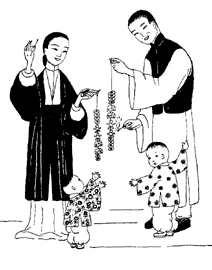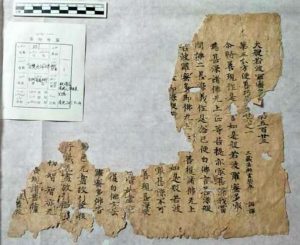
This April will see the annual Chinese festival of Qingming: more commonly known in China as the occasion to tend to our ancestors’ graves and burial sites. An occasion that predates Easter and Christmas, Qingming reminds us that there are shared cultural virtues that surpass any material profit in supposed value. All contingent matter shall perish, but the spirit of our ancestors always remains to guide us.
At the heart of Qingming are values that have defined Chinese culture and civilization: continuity, respect for the past, and memory. These values contrast starkly with what Hong Kong, even with its British history and heritage, has become: we are a largely secular city despite the rise of Catholicism and Protestantism, and it would be impossible to call Hong Kong a Buddhist city. The statistics simply do not give credence to the idea that we are an overtly religious metropolis. What has also been a continuing annual trend is the decreasing interest of young people in what appear to be stuffy traditions that look ridiculous at best, superstitious at worst. As Buddhism has found a home for itself in Confucian and Taoist belief as well as Chinese folk religion, it has suffered from being tarred with the same brush.This is unfair, of course, for all the traditions mentioned above. It is true that the Taoist halls are almost empty most days of the year except for culturally important festivals. We also have to admit that not all Buddhist temples are thriving centres of community: they are facing stiff competition from more secular venues like bars, clubs, or arcades. But as the number of suicides (across diverse demographics) and the rate of unhappiness rocket beyond any reasonable scale this year, it would seem strange to assume that religions like Buddhism or traditional Chinese folk religion are irrelevant, old-fashioned, or unnecessary. We cannot deny two things: our past, and the fact that Hong Kong is one of the most miserable cities on Earth. Every year the same question is trotted out: How could such a beacon of capitalism find itself in such an existential rut? And every year, the same answers are given: unmatched financial and social expectations, staggering pressure from parents, society, and the media, and rampant materialism that literally matches (in some cases surpasses) London and New York.
But the elephant in the room that is rarely mentioned is the sundering and gutting of the traditions that make up the Chinese tradition, the fact that the most exposure many get to the vast richness and diversity of five thousand years of Chinese culture is the occasional TVB soap or the high school class and university lecture. In 2009, the Government declared Tung Lin Kok Yuen a Grade I Historical Building, the city’s highest rank for any Hong Kong landmark save the status of Declared Monument. This was a long-deserved protection of a temple that comprises a vital component of Chinese Buddhism in Hong Kong. Many other sister temples and monasteries, unfortunately, are not so well-respected. We should not only concentrate on the preserving the physical fabric of our traditions, but also strive to revitalize the immaterial aspect of ancestral heritage. Perhaps by presenting all that tradition has to offer in new and engaging ways (such as the Robert H. N. Ho Foundation’s We all live in the Forbidden City initiative), Hong Kong can begin to turn the tide of existential misery toward a more balanced vision of spiritual maturity.
It is said that there is no rest for the wicked. There is equally no rest for the sincere Buddhist. She has as much work to do as any charity, educational institute, or foundation. For by living the ancient tradition of Chinese Buddhism (or any other Buddhism), she is attesting to the radical difference this faith of compassion and wisdom can make in the unhappiness and dis-ease of modern life. Religious traditions are far from perfect, but they offer a glimpse into that piercing purity of purpose and service to ancestors that Qingming teaches: the homage to pure light and luminosity.











